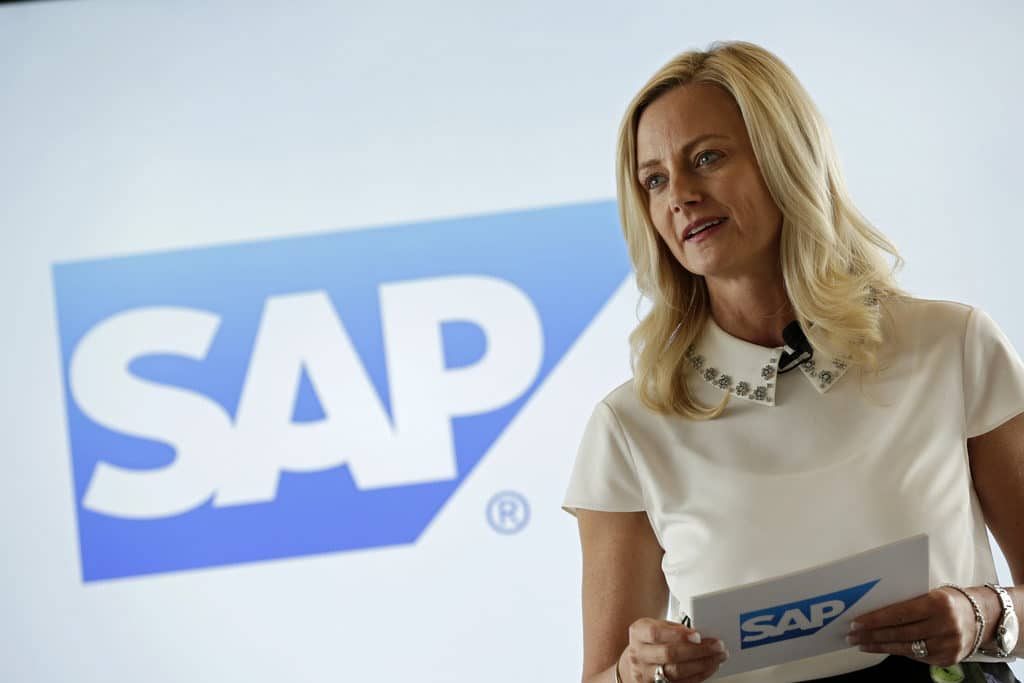Enterprise marketing is increasingly borrowing practices from the consumer space, especially in the digital channels. Technology companies have been leaders in the drive to adopt everything from social media to online video to reach business decision makers.
SAP has been one marketer that has consistently worked to expand content marketing and adopted new tools, from artificial intelligence to influencer marketing.
“Customer experience comes in many forms… All of those things need to be interlinked in some way,” said Alicia Tillman, chief marketing officer. “Marketing has that view more than any other organization, to be able to see what all of those platforms are, what all of those experiences are, and then take a lead.”
Tillman spoke to Velocitize about customer experience, profit and purpose and how data can enable them.
Velocitize: Is experience the new marketing? Is what used to be considered marketing, advertising and promotions, now secondary to the interaction with the customer?

Marketing is the only organization that has that end-to-end view across every product, every industry, every audience. And if marketers are not taking that leadership role to help design that customer experience, then it’s a missed opportunity.
Can there still be a separation between B2B and B2C? Sometimes your customers’ customers know about as much about their business as they do.
Alicia Tillman: I’m actually an advocate of completely abolishing the lines that separate B2B from B2C. It’s another area in which marketers can think about how they quickly evolve the manner in which they communicate.
If you continue to just prioritize your marketing efforts on the handful of decision-makers that are generally at the forefront of making decisions on B2B technology, then you’re missing an incredible opportunity to interject where your brand stands out. Influence today is happening so much at the end-user level.
You can’t lose sight of what the decision makers and companies are looking for. Generally, it’s transparency, it’s cost saving, and of course, it’s always going to be better service—which is really in support of the end user. But service is beginning to become just as important as tightening costs and gaining greater transparency. Because of that, our marketing practices need to change, so that we do speak more often about service.
Marketers are often arguing they must show how marketing drives sales and revenue. But can you be strictly focused on the bottom line or does your brand have to also show purpose, a personality, so to speak?
Alicia Tillman: I think regardless of what segment you’re in, purpose is becoming the number one driver of brand value in today’s environment. People today differentiate brands based on those that stand for something and are doing good in the world, versus those that are not.
This needs to be an incredible part of a company’s strategy; it needs to be at its core, because there is a link between purpose and profitability. You see it being talked about in so many different circles of the marketplace.
Meanwhile, the data-driven organization isn’t going anywhere, either. So how do you balance the drive for purpose and the drive for data-driven decision making?
Alicia Tillman: I think data is an enabler of our ability to drive a better customer interaction. Look, we live in a world today that is moving so very fast. The pressures on all of us grow by the minute, not to mention the family and personal life list of priorities, combined with what you have to get done in your careers every day.
Data provides access to information to really truly help you run better. And ultimately empathy is as often about how well you know someone and can build a value proposition that is relatable to them.
Unfortunately, with the way of the world and how fast it’s operating, there’s just not the right amount of time to be able to interact like most people would want to. Having data helps to enable you to still feel like you can understand someone and build products and solutions that ultimately feel very relevant to someone.
So between the talk of data breaches and regulation like GDPR, have we reached a tipping point where marketers are going to just put their foot down and clean up their data?
Alicia Tillman: The best marketers will recognize this as an incredible tipping point and as a way to embrace and take advantage of things that GDPR allows for. You think of these moments and how quickly they can get embedded in your day-to-day.
Some people may look at GDPR as just that: It’s a rule, we have to comply. We’ve got to change a bunch of things and it’s a matter of just protecting customer data more.
But if you instead use it as an opportunity to embed it into your practices overall—and use it as a way to have a different kind of conversation with the customer and help build towards increased trust and loyalty—those are the marketers that will lead us into the future and have marketing be a company’s most strategic asset. Because that’s what I believe we are.
But so much of it is about how well the marketers themselves embrace these happenings like GDPR as opportunities to further the role of marketing that ultimately works in the benefit of the customer.





Dinesh on
The marketing strategy is relevant to the development of the social economic environment as well as social enfrastructure.